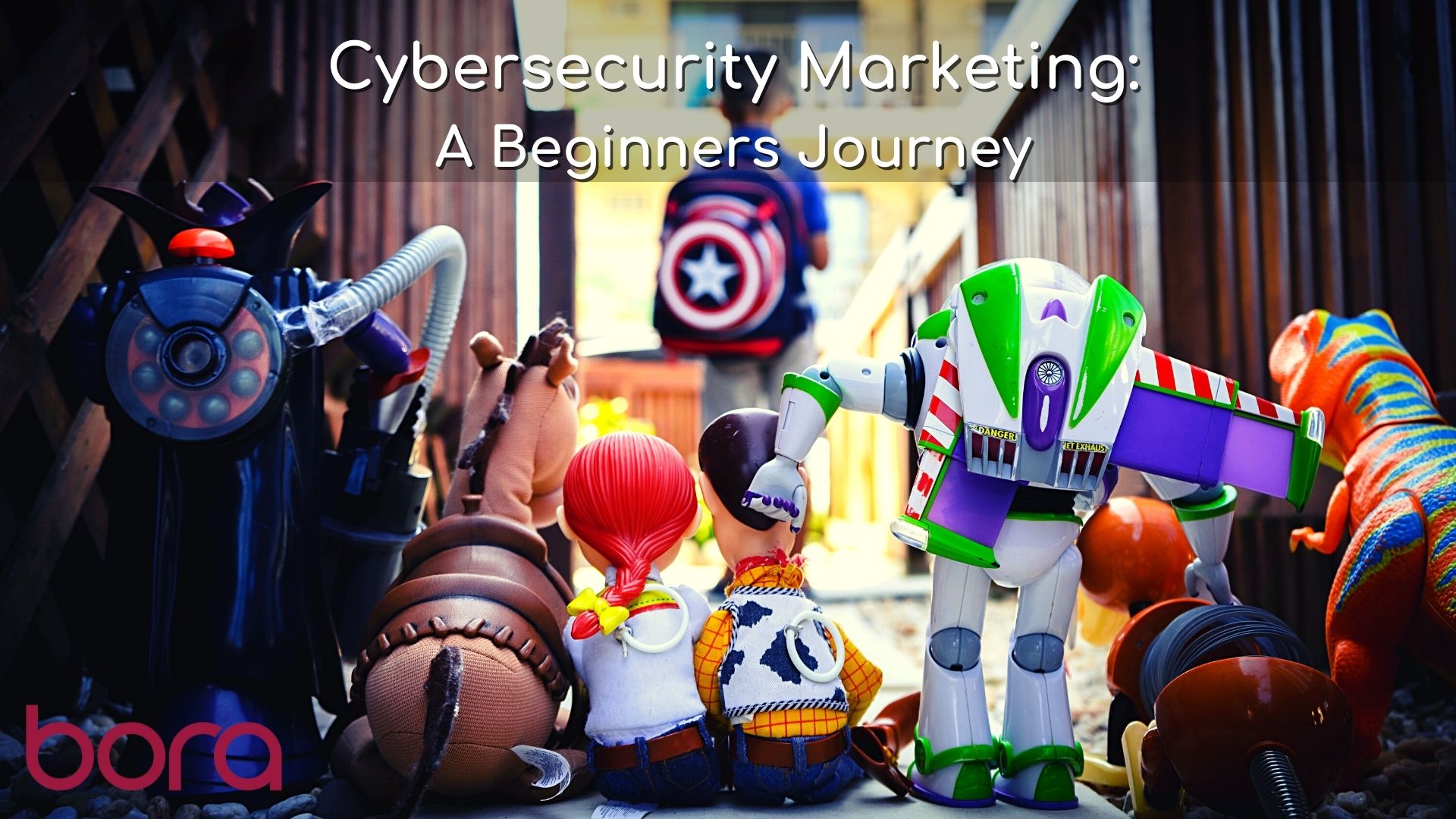I am a newcomer to the field of cybersecurity marketing. It can be difficult for anyone starting a new career, a matter that isn’t helped these days by the proliferation of acronyms and idioms, especially in the cybersecurity field. This blog can serve as a guide for the uninitiated, offering a first-hand account of what I have learned in my first two weeks in cybersecurity marketing.
How the Industry Works
Prior to commencing my new role working in cybersecurity marketing for Bora design, I set about researching this career path. My research began online, and I was soon encountering the individuals, companies, and publications that not only occupy this space but are being promoted within it.
At a fundamental level, marketing is the process of getting people interested in your product or your service. The responsibility of getting people interested can be allocated in-house, externally, or in partnership with an outsourced marketing company. Decision makers at cybersecurity companies are undoubtedly experts at what they do, however, the process of creating, publishing, and distributing content has evolved exponentially over the last decade.
This evolution has coincided with a growth in the number of companies prepared to take control of, (or collaborate on) the process.
It has become increasingly difficult for decision makers to relinquish full control and to justify the increased expenditure of a company supplying an advertising and marketing service to them.
Who I Work For
My new employer, Bora Design is an example of a company that acts as a partner, rather than a supplier. The “secret sauce” that we use is based on working collaboratively with clients to effectively share their work and ideas in the cybersecurity space. It has always been important for me to work for a company whose values align with my own. Having a clear set of values helps employees understand what the company stands for and informs the company ethos.
The ethos of a company is its core set of values or operating principles that are used to set the tone for the company’s overall operations. At Bora, “Cybersecurity is about people, process, and technology – in that order.” In meeting my colleagues for the first time, (albeit remotely) everyone was very friendly and supportive. I was invited to attend the weekly meetings held on the workplace messaging program and observed how the team organises and monitors projects on our collaborative workspace application. A positive company disposition is often evident in the way the organization’s people interact with each other, the values they hold, and the decisions they make.
What Cybersecurity Marketers Do
Cybersecurity marketers use outcome-based methods for the creation and promotion of content, underpinned by a strategic process in order to maximise client visibility. This process begins by seeing a client’s vision from the perspective of a potential customer. The customer’s viewpoint is then used to create the buyer’s persona. This research enables the marketers to refine the semi-fictional representations that depict a target customer. Constructing a detailed buyer persona provides insight into the target customers’ motivations, goals, and problem-solving processes. The garnering of this information is crucial to informing the process of content creation.
Content can take multiple forms such as blog posts, white papers, eBooks, and interviews with industry thought leaders. This content can be presented in myriad ways, including written documents, audio podcasts, or short videos. Social media is a high-profile example of a medium used to promote content in the cybersecurity marketing industry. Social media can be a highly successful medium to gain visibility for your clients, but not all social media channels may be suitable. For example, Reddit is an American social news aggregation, content rating, and discussion website. On Reddit, it may be suitable to publish a topical blog post, but unsuitable for publishing a technical white paper. Cybersecurity marketers make informed decisions to maximise exposure for their clients. I have learned quickly that serving up the right content to the right people in the right manner is the best recipe for success.
Why does the Cybersecurity marketing industry matter?
Author and motivational speaker Simon Sinek featured his “Why” model during his incredibly popular Ted Talk. Sinek claims that “Why” is probably the most important message a business or an individual should communicate, as it inspires others to act. Sinek asserts that “People don’t buy what you do, they buy why you do it”.
There are several reasons why cybersecurity marketing matters. Primarily, it advances the message of staying safe online. The prevalence of cybercrime is just too costly, for both individuals, as well as organizations. From a business perspective, the “why” also recognizes that it is an expanding industry, offering many opportunities. According to Fortune Business Insights, the global cybersecurity market is projected to grow by 13.4% over the next seven years. This growth brings increased competition, emphasizing the importance of having the input of a team of cybersecurity marketing experts to help you position your brand and clarify your message at the forefront of this competitive space.
Cybersecurity marketing is essential in portraying the right message to your audience. An example I continually see is that of promoting resilience over fear. I have found that some companies still display a tendency to resort to a default cybersecurity campaign driven by messages based on fear, uncertainty, and doubt (FUD). Educational and technical solution-orientated messages resonate much stronger with an audience, whether it is internal staff or external customers. This is a prime example of an outcome-based solution.
In conclusion, my first two weeks working in cybersecurity marketing have been not only educational but also exhilarating. This industry is about people, namely, understanding them, and working collaboratively with them. Proceeding in this way is the most effective way to grow brands and promote ideas and products.





